In an age where digital distractions often overshadow the wonders of our natural world, our recent event 'Our Place in the Solar System,' held in partnership with Caithness Astronomy Group (CAG), offered a refreshing opportunity to reconnect with the cosmos. Despite the capricious weather, twenty-nine participants gathered to explore the intricate beauty and vastness of our solar system.

The event began with an inspiring presentation by Gordon Mackie from CAG. Gordon eloquently described the 'Goldilocks Zone,' highlighting Earth's unique position in the solar system—not too close to the Sun to be scorched, and not too far to be frozen, but at just the right distance to support complex life. This delicate balance, often taken for granted, are finely-tuned conditions that make our planet a thriving oasis in the vast desert of space.
Following this enlightening presentation, we transitioned to a range of indoor learning activities focused on food chains and food webs, led by our dedicated rangers. These games aimed to illustrate the interconnected systems of life on Earth, echoing the cosmic balances Gordon had described. Just as the Earth relies on the Sun's energy to sustain life, each organism within an ecosystem depends on others, creating a web of life that is both resilient and fragile.
Exploring the Cosmic Scale
Braving the elements, we ventured outside onto Dunnet Beach for our outdoor activities. Here, participants experienced a scale model of the solar system, offering a tangible sense of the immense distances between celestial bodies. For instance, if the Sun were scaled down to the size of a beach ball, Earth would be a tiny pea 26 meters away, while Neptune would be a mere speck situated over 780 meters from the "Sun." Such demonstrations brought the staggering expanse of space into a more relatable perspective.
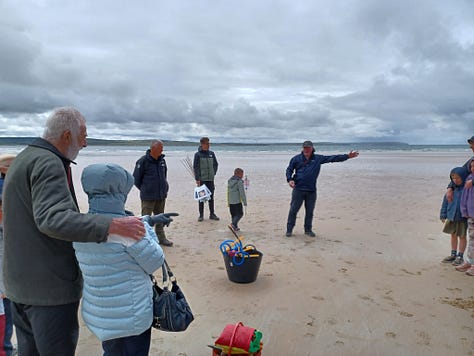
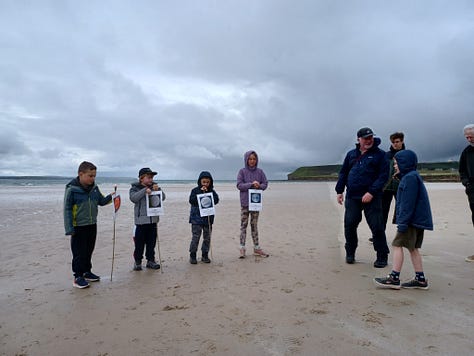
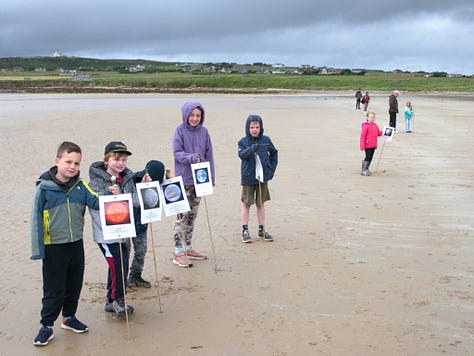
Creative Cosmic Expressions
Next, participants engaged in 'space'-themed sand art. This creative exercise allowed both children and adults to visually express their newfound understanding of the solar system, blending science with artistry as they sculpted planets and cosmic landscapes in the sand.
The Thrill of Rocket Science
The day culminated in the launch of air-powered rockets. Watching these rockets, built by enthusiastic participants, soar into the sky was a thrilling experience. It wasn't just an entertaining activity but a practical demonstration of basic physics principles, highlighting the concepts of propulsion and aerodynamics in a fun and engaging way.
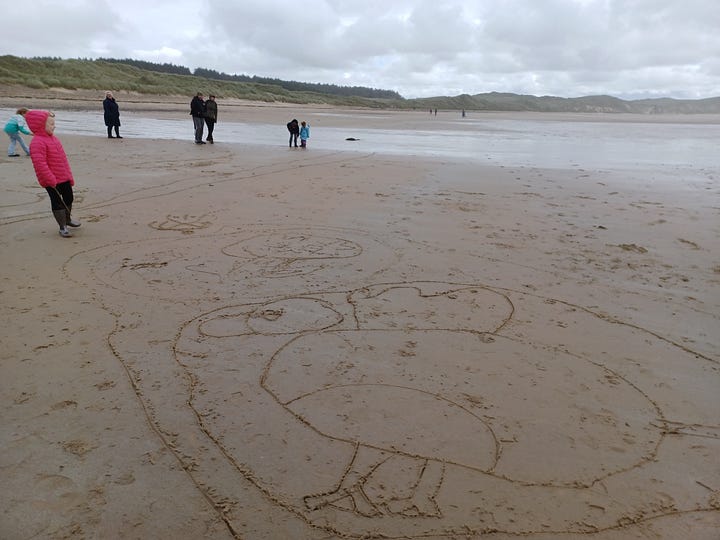
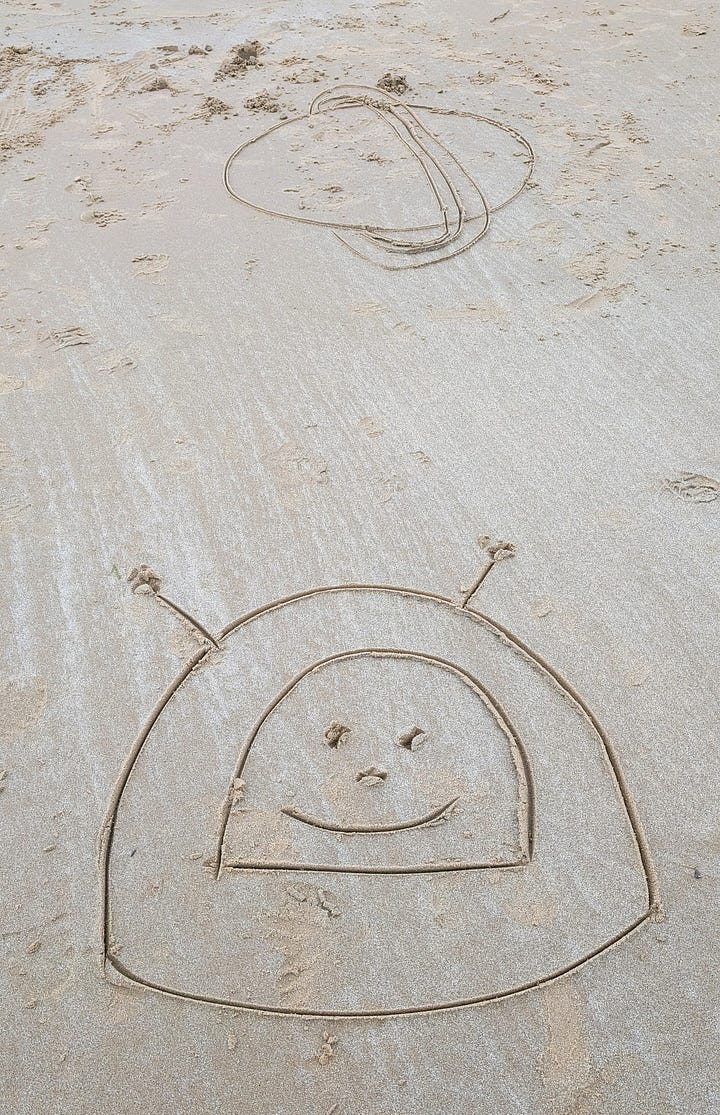
The Beauty of Dark Skies; Astronomy as a Lifelong Pursuit
In our modern world, light pollution often dims our view of the cosmos. However, places like Dunnet Beach offer a sanctuary where the stars can shine in their full glory. Recognising planets such as Venus, with its steady, bright glow, becomes an accessible joy, reminding us of the simple pleasures of stargazing.
The event also highlighted how accessible astronomy is as a hobby. With just a pair of binoculars or a small telescope, anyone can start exploring the night sky. Resources like star charts and mobile apps can guide beginners, while astronomy clubs such as the Caithness Astronomy Group and online communities provide support and knowledge-sharing opportunities.

A Community Effort
Our heartfelt thanks go to the members of Caithness Astronomy Group, particularly Gordon Mackie, for their hard work, enthusiasm, and expertise. Their contributions were invaluable, ensuring that every participant left with a deeper understanding and appreciation of our solar system.
'Our Place in the Solar System' was a journey of discovery and reflection. It reminded us that we are part of a vast, interconnected universe, where the distances between planets are as mind-boggling as the ecosystems on Earth are intricate. Shared community learning experiences like these organised by High Life Highland help to create life long learning opportunities, which in turn help our wellbeing. We are all inhabitants of this small, blue planet, sharing in the wonder and responsibility of our place in the solar system. Just as our planet orbits the Sun in a delicate dance, our curiosity and reverence for the universe can guide us towards a deeper appreciation of our shared existence.





Gosh this was amazing! Wish I’d been able to go!